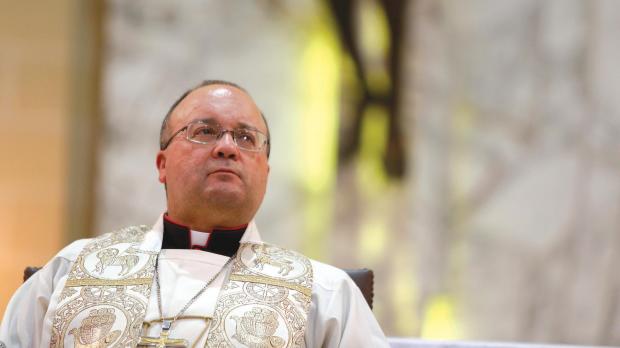When Cardinal Raymond Burke wrote in April that Pope Francis’ post-synodal exhortation on the family did not change Church teaching, he was predictably condemned by those who had been casting aspersions on the document released just three days earlier.
“This is nothing less than a betrayal from one who should have offered hope,” tweeted one fanatically anti-Francis blogger, continuing, “we have been thrown to the wolves.”
It was the kind of kneejerk response, devoid of charity, that has blighted the current papacy, such that those who claim Amoris Laetita is causing confusion in the Church might do well to reflect on whether their own actions might in any way be part of the problem.
Last week saw perhaps the most egregious examples of this kind of behaviour yet, when hardly had Malta’s two bishops issued guidelines on applying the section of Amoris Laetitia dealing with Communion for the divorced and remarried, before they were being shouted down across the internet.
One prominent canon lawyer promptly said the document could only be called “disastrous”, declared that the bishops succumbed to a classic error, and questioned their understandings of basic canonical language, observing, “the Maltese bishops do not seem to know what the word ‘conjugal’ means”.
Others have been less charitable, claiming for instance that the bishops had “rejected the perennial teaching of the Church”, wondering whether they understand little of Catholicism, casting them as modern Pharisees, and misrepresenting the guidelines as saying they allow the divorced-and-remarried to receive Communion as long as they “feel at peace with God”.
Watchdog
Truth deserves better than this, and so too do Malta’s Archbishop Charles Scicluna and Bishop Mario Grech of Gozo.
Archbishop Scicluna, after all, is one of the world’s leading canon lawyers. A one-time doctoral student of Cardinal Burke and the author of a 400-page academic tome on the definition of marriage, he spent five years as a canon lawyer in Malta before working for 17 years in Rome, initially in the Apostolic Signatura and then under the then Cardinal Ratzinger in the Congregation for the Doctrine of the Faith.
In the CDF, the Church’s doctrinal watchdog, he was the future Pope’s right-hand man in the struggle against clerical abuse, and was famously tasked with gathering information necessary for the prosecution of the disgraced Fr Marcial Maciel. He continued this role through Benedict XVI’s papacy, being promoted away from Rome to Malta and appointed a member of the CDF scarcely months before the then Pope announced his resignation.
The Maltese guidelines may prove misguided, but Dr Scicluna’s credentials and record are such that he shouldn’t lightly be dismissed as lacking knowledge, fidelity or integrity.
Would that the same could be said of his critics.
An emphasis on conscience is at the heart of the Maltese bishops’ guidelines, with the bishops concluding that a divorced-and-remarried Catholic cannot be denied Reconciliation and the Eucharist if, as a result of a suitably sincere and thorough discernment process, he or she “manages, with an informed and enlightened conscience, to acknowledge and believe that he or she [is] at peace with God”.
In no way should this be equated to a merely subjective ‘feeling’. On the contrary, time and again in recent decades when liberal Catholics have sought to justify disobedience to papal teachings, they have done so on the grounds of ‘conscience’, only to be rightly rebutted by more orthodox Catholics pointing out that only a properly formed conscience has such authority.
Now, though, too many are reacting to the Maltese calls for their clergy to enlighten consciences and for enlightened consciences to be respected, by saying this would mean a sacramental free for all. We can’t have this both ways. Either we respect properly formed consciences or we don’t.
One controversial section in the Maltese guidelines notes that while some couples in which at least one partner is divorced and remarried manage, with God’s help, to live as brother and sister rather than as husband and wife, in other “complex situations” this can become “humanly impossible and give rise to greater harm”.
It’s worth considering whether the guidelines necessarily envisage couples discussing this matter with their priests, or if they might envisage individuals doing so, explaining that while they would wish to live “as brother and sister”, their partner might not be so amenable to this, with any children the couple have paying the price should such efforts harm or end their relationship.
This might seem extreme, but the bishops have complex situations in mind: this isn’t intended as guidance for everyone.


 Greg Daly
Greg Daly Malta’s Archbishop Charles Scicluna
Malta’s Archbishop Charles Scicluna 